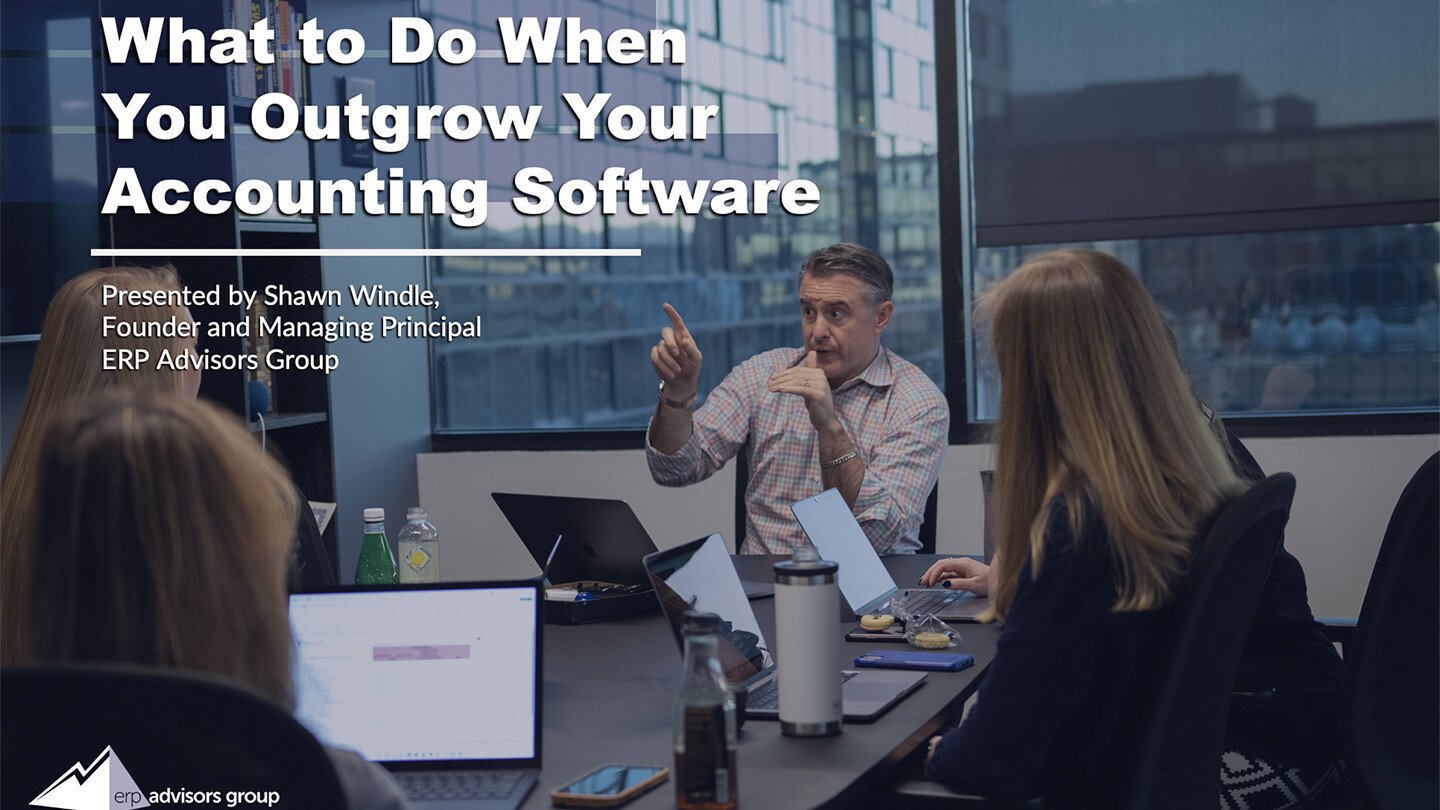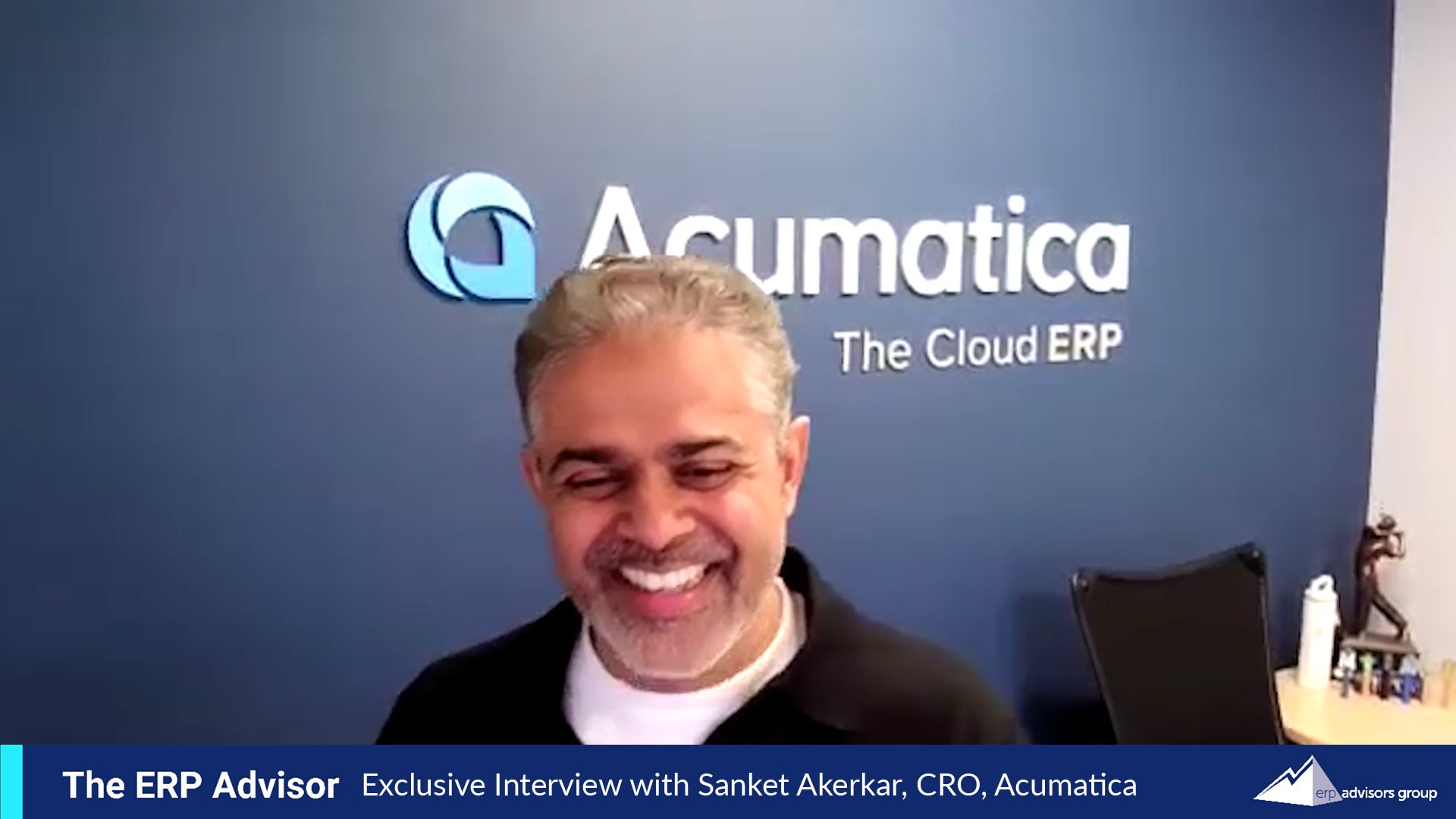
Human Capital Management (HCM) solutions have transformed the way employers interact with their employees, allowing companies to take Human Resources to the next level of increased productivity and engagement for end users and administrators alike. The best HCM software can propel your business forward into a new era of business value, but how can you identify the right product for your organization? Join ERP Advisors Group where ERP expert Shawn Windle will explore the business opportunities made possible through HCM software.
Why Really Great HCM Software Should Matter to Your Business
Remote work has removed the headache of commuting to work for nearly 33 percent of Americans. As a result, dispersed employees must now interact with their employers through various software applications. Unfortunately, there is no one-size-fits-all solution, but the right software needs to be in place for companies to provide their teams with high-quality, easy-to-navigate experiences. Today, we will break down the benefits of implementing a Human Capital Management (HCM) solution, and why it should matter to your business.
What is HCM Software?
HCM, or Human Capital Management, is a term used to describe software applications built to manage functions of Human Resources, more specifically, the lifecycle of an employee. Essentially, it manages one of a business’s most crucial assets: people! HCM has developed over time to meet the expanding needs of HR, beyond basic payroll functionality traditionally offered through third-party providers like ADP. With teams continuing to grow, HCM software is becoming more of a necessity than a suggestion if businesses want to retain top talent, especially as companies grow beyond only five to ten employees.
What Role Does HCM Play in Relation to an ERP System?
While an ERP sits at the heart of a business to manage core processes, HCM exists to manage the people that enable the business to exist and operate. HCM acts as the brain of your business to organize resources and make decisions for the rest of the body. HCM provides the necessary structure to ensure the resources are in place to maintain in the business. On the other hand, Enterprise Resource Planning (ERP) software is the heart of the business. Without a proper structure in place, the rest of the body will not be able to function or exist. Moreover, HCM can play a make-or-break role in managing the employee lifecycle, thus empowering HR to continue to grow the business.
Certain ERPs include built-in HCM and related functions to manage HR and payroll activities, although, these tend to be larger, more expensive Tier 1 solutions.
A Business Case for HCM
There are several factors that may indicate a need for HCM. The most common indicator is a significant increase in a company’s number of employees. The bigger the team, the bigger the need. Many companies find themselves scrambling through filing cabinets when HCM software could easily eliminate the need for physical documents and associated storage space! Unfortunately, it can be extremely difficult for companies to build a business case for HCM, especially because the value is not as immediately recognizable as other solutions, like ERP. Despite the hesitancy, HCM has value in reducing the number of HR staff needed to manage and organize manual processes. A well-implemented HCM will save a company hundreds of thousands of dollars alone in future salaries.
A fool-proof visual for an HCM is seeing it from a lifecycle perspective. HCM solutions provide significant value in simplifying the employee management process. Whether the employee is in hiring, onboarding, or even leaving, the HCM will expedite and maintain the process.
Core Requirements for Selecting an HCM:
Asking the right questions will enable businesses to create a blueprint for their strategy in implementing HCM solutions. The three most important questions to ask are:
- What problem are we trying to solve?
- What does our business need?
- What process do we want to automate?
Above all, a business must understand its needs. Failing to do so could result in selecting the wrong solution and cost the company a significant amount of time and money. Despite business requirements, the one universal need is payroll. Many companies manage their payroll internally, further emphasizing their need to implement the correct software. It is important to note that, often, the HCM will be separate from the payroll solution, therefore, the selected HCM must be able to easily integrate with the payroll solution, if you are not outsourcing the services.
While all companies need a payroll solution, they should consider adding an HCM if HR is creating a million spreadsheets to create the illusion of effective tracking. HCM cleans up the mess, leaving HR with a treasure worth keeping. Being intentional about which software to select will help save time, employees, and, ultimately, the company, if a firm is struggling to decide if it needs something more, that alone could be enough to consider adding an HCM. But if your current system is fulfilling your needs, do not change anything.
Another major consideration is compensation management, which is centered around assigning payroll across an organization. Each department receives its own budget, but those budgets can vary tremendously. As an example, a sales department may receive double the administration budget because of their commission requirement. Luckily, budget allocation doesn’t have to be a guessing game because HCM provides this specific functionality. In addition, HCM can also break down the compensation by department and individual so firms can plan at a higher level than ever before. Taking action on the necessary changes, whether in compensation management or elsewhere, is a vital piece for growth and survival when deciding on implementing an HCM.
Conclusion
The most important thing a business can do is understand their needs. Unlike ERP, the right HCM will be extremely customized (and is built to be!) so having a thorough understanding of your needs will be important in selecting a solution that can be built around your processes. Talking to multiple vendors to compare functionality will give you a basis for selecting the right solution. When it relates to the future of your business, investing in the right software is going to deliver a much higher return than cutting corners and not committing time and resources to the process. At the end of the day, the biggest question is “What experience do we want to give our employees?” Answering this question provides clarity when developing a business case for purchasing an HCM.
Advisors are a great resource when searching for help. If you need assistance in building your business case for an HCM, reach out to ERP Advisors Group today.





